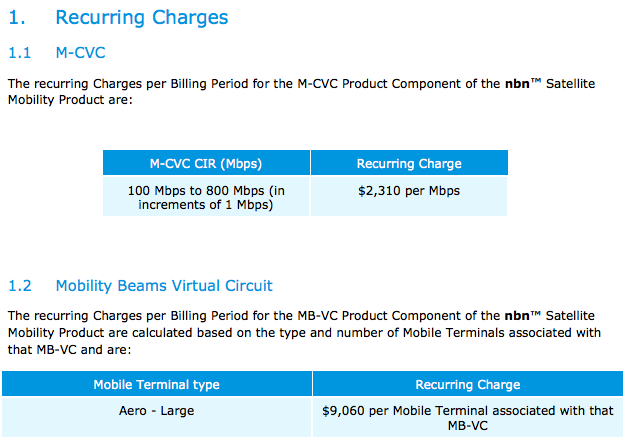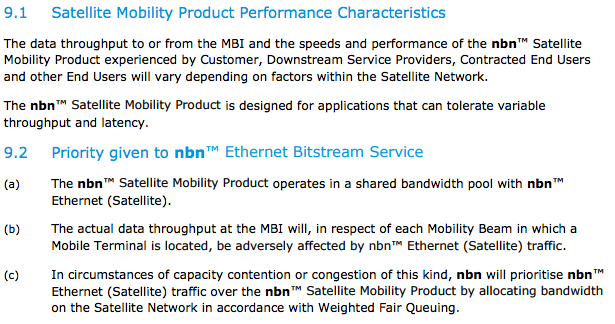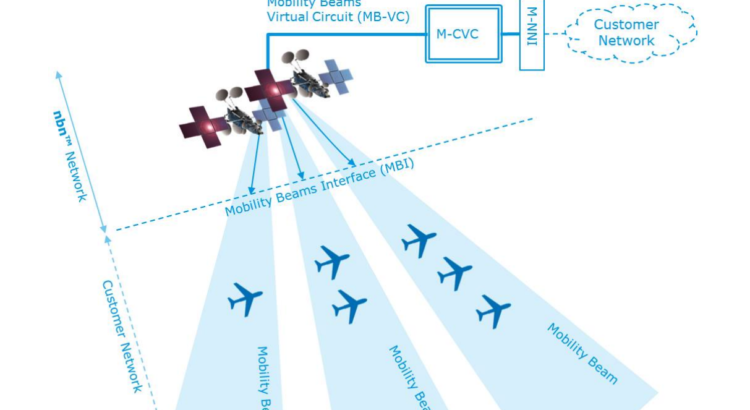Proof-of-concept Wi-Fi trial with Qantas becomes commercial product
Last Friday, the company responsible for building and operating the National Broadband Network (nbn) launched its Large Commercial Passenger Aircraft (LCPA) Satellite Mobility product.
After trialing a proof-of-concept aeronautical satellite product with Qantas earlier this year, the company has released commercial supply agreements including product descriptions and pricing.
Pricing model
nbn will charge satellite mobility (LCPA) customers at a significant premium for both its access and connectivity compared with the standard NEBS (NBN Ethernet Bitstream Service) Satellite product.
On the connectivity side, the Mobility-CVC (M-CVC) will cost $2,310 per Mbps with a minimum order of 100 Mbps. This is compared to $17.50 per Mbps per month for the NEBS product plus a $200 NNI charge.
On the access component, nbn will charge $9,060 per month for each aircraft’s Mobility Beams Virtual Circuit (MB-VC).

NEBS given traffic priority
nbn states in its LCPA agreement that residential and business customers using the standard NEBS (NBN Ethernet Bitstream Service) product will be given traffic priority over satellite mobility customers.
During any capacity congestion or contention event, nbn will use a Weighted Fair Queuing algorithm to prioritise NEBS traffic over Satellite Mobility product traffic.
The agreement says that, as a result, LCPA traffic will “be adversely affected by nbn™ Ethernet (Satellite) traffic”.

Standard satellite product also revamped
The LCPA launch comes as nbn revamped its satellite offering for residential and business customers in rural and regional Australia this month. The satellite fair use policy has been relaxed with data allowances doubled across the board.
